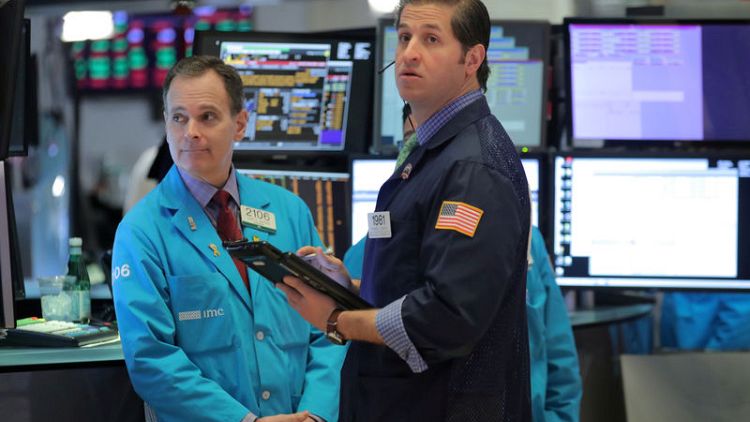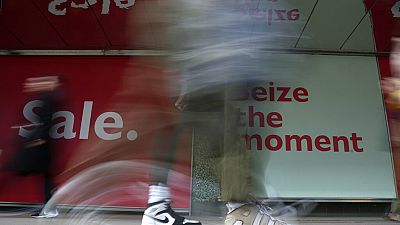By Lewis Krauskopf
NEW YORK (Reuters) - Benchmark U.S. and European bond yields moved higher on Thursday after prolonged slides, while gains on Wall Street countered declines in other world stock markets as investors eyed U.S.-China trade talks and economic growth.
While the U.S. dollar firmed against a basket of key currencies, the Turkish lira plunged as liquidity returned to the London foreign-exchange market, prompting President Tayyip Erdogan to blame the currency's weakness on attacks by the West.
Another severe move was seen in palladium, which plummeted 6.6 percent as concerns that an economic slowdown could dent demand and a weak technical picture pushed investors to book profits after a record run.
Data on Thursday showed the U.S. economy slowed more than initially thought in the fourth quarter, keeping growth in 2018 below the Trump administration's 3 percent annual target.
Investors have been on heightened alert for signs of the U.S. economy's strength since Friday, when the 3-month U.S. Treasury yield exceeded the yield on the 10-year note, an inversion of the yield curve that is widely seen as an indicator of a recession.
“Simply seeing the 10-year just stabilise is a good sign,” said Keith Lerner, chief market strategist with SunTrust Advisory Services in Atlanta.
"Right now, stabilization in the yield, or yields actually moving higher, would be a positive (for stocks) because there’s a concern that the declining yield is telling us something negative about the overall growth outlook,” Lerner said.
Wall Street's main stock indexes swung between gains and losses before ending solidly higher.
The Dow Jones Industrial Average rose 91.87 points, or 0.36 percent, to 25,717.46, the S&P 500 gained 10.07 points, or 0.36 percent, to 2,815.44 and the Nasdaq Composite added 25.79 points, or 0.34 percent, to 7,669.17.
China will sharply expand market access for foreign banks and securities and insurance companies, especially in its financial services sector, Premier Li Keqiang said, as senior U.S. officials arrived in Beijing for more trade talks.
Earlier, sources told Reuters that China has made proposals in talks with the United States on a range of issues that go further than it has previously.
"That kind of news always has an impact on markets in this environment where there is hypersensitivity to the trade situation,” said Kristina Hooper, chief global market strategist at Invesco.
The pan-European STOXX 600 index lost 0.12 percent, as signs of trade progress were overshadowed by worries over economic growth and Britain's chaotic effort to leave the European Union.
MSCI's gauge of stocks across the globe gained 0.04 percent.
Benchmark 10-year U.S. Treasury debt yields rose from 15-month lows as investors continued to adjust to a dovish pivot from global central banks.
U.S. 10-year notes last fell 5/32 in price to yield 2.3876 percent, from 2.372 percent late on Wednesday.
Germany's 10-year bond yield, the European benchmark, rose from 2-1/2-year lows but remained negative.
The dollar rose against rivals - which were weakened by dovish soundings from central banks - in spite of the cut to the U.S. economic growth estimate in the fourth quarter.
The dollar index rose 0.48 percent, with the euro down 0.22 percent to $1.1222.
Oil prices recovered from sharp losses earlier in the session after U.S. President Donald Trump called for the Organization of the Petroleum Exporting Countries to boost crude output to lower prices.
U.S. crude fell 0.2 percent to settle at $59.30 per barrel and Brent settled at $67.82, little changed on the day.
(Editing by Dan Grebler and James Dalgleish)



